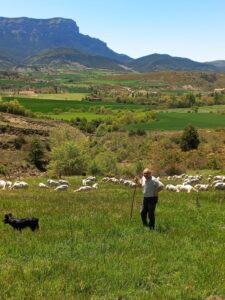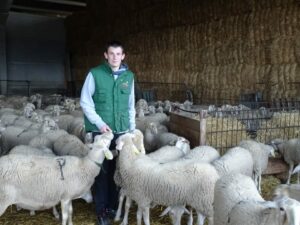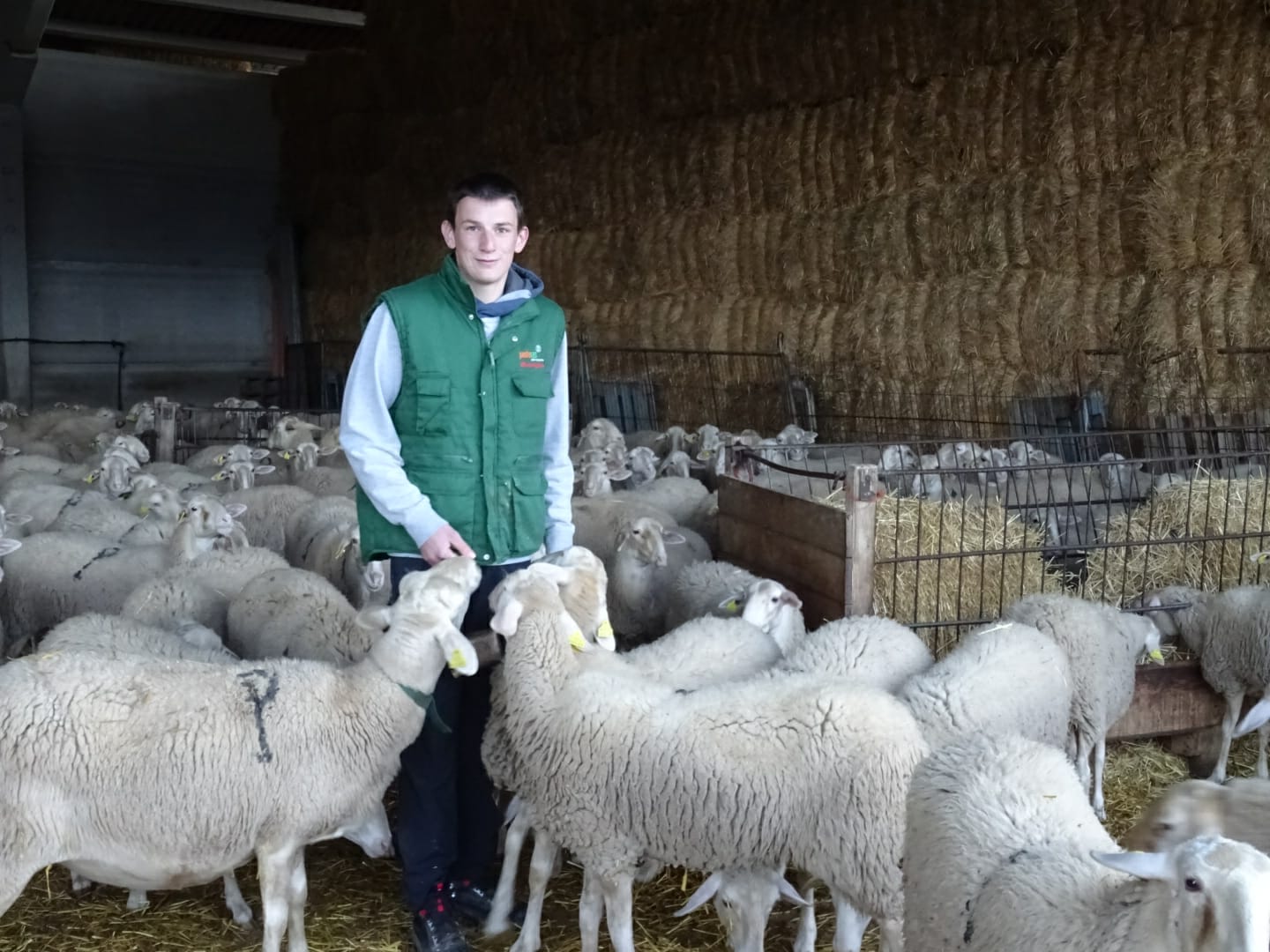Maximino Portaña e suo figlio Alejandro gestiscono un allevamento di ovini da carne con circa 700 capi di pecora Rasa Aragonesa, situato nei Pirenei aragonesi vicino a Jaca (Huesca, Spagna), e facente parte della Cooperativa OVIARAGON. Gestiscono i prati naturali e le pianure della zona, nonché i pascoli di montagna in estate. La mandria mantiene un adeguato livello di produzione grazie alla gestione della genetica, della riproduzione, dell’integrazione alimentare durante i periodi di scarsità di cibo e a un buon controllo della produzione individuale e collettiva attraverso il lettore SIRA e il programma di gestione tecnico-economica gestito da Oviaragón.
Partecipano al progetto LIFE GREEN SHEEP fin dall’inizio e in questa intervista condividono le loro riflessioni.

Foto 1: Maximino Portaña con il suo gregge al pascolo intorno a Peña Oroel a Jaca (Huesca).
Fonte: oviaragón
Qual è la vostra opinione sull’implementazione di questi progetti per valutare l’impatto dell’allevamento sull’ambiente?
Prima di tutto, penso che sia fantastico che vengano condotte tali valutazioni per fornire dati reali e aggiornati. L’allevamento estensivo offre molti vantaggi e servizi ambientali, ed è importante riconoscere e quantificare i costi economici, sociali e ambientali.
Cosa ne pensate della partecipazione di Oviaragón, la cooperativa a cui appartenete, a queste attività?
È necessario che entità significative del settore, come la cooperativa, si impegnino e diffondano queste azioni e risultati, rendendo il nostro lavoro più visibile alla società, al pubblico in generale e all’amministrazione, che in gran parte rimane sconosciuto o incompreso. Inoltre, ci manca un settore che, senza il coinvolgimento di cooperative come la nostra, impegnate a migliorare le pratiche zootecniche, sarebbe disposto a intraprendere tali misurazioni. È ingiusto che il nostro allevamento estensivo sia spesso demonizzato dai media per quanto riguarda le emissioni che genera, mentre altri settori come quello industriale e logistico (compresi la produzione di energia, i trasporti, il turismo, ecc.) svolgono un ruolo molto più significativo. La società deve essere più consapevole che produciamo cibo, che, non dimentichiamolo, è assolutamente essenziale.
Pensate che siano necessari grandi investimenti per diventare più sostenibili?
Assolutamente no. Se produciamo in modo più efficiente e in armonia con il nostro ambiente e le nostre capacità, applicando tecniche ancestrali come il pascolo, possiamo dimostrare che siamo già un’attività sostenibile che genera molti prodotti e servizi di ogni tipo. La novità è che ora ci sono metodi e interesse nel valutare queste stesse azioni da una prospettiva ambientale. Tuttavia, è anche vero che il mantenimento di questi sistemi zootecnici richiede un grande sforzo umano e spesso più denaro di quanto l’attività generi, il che solleva la questione di dove dovrebbero provenire i fondi necessari.

Foto 2: Alejandro Portaña con le sue pecore nel fienile. L’importanza dell’allevamento ovino deve essere meglio riconosciuta per consentire ai giovani come lui di continuare l’attività.
Fonte: oviaragon
Dopo aver appreso i risultati iniziali delle emissioni del vostro gregge, come li valutate?
È essenziale capire quali innovazioni e come possiamo ridurre queste emissioni in modo economicamente sostenibile e gestibile in termini di lavoro necessario. Ci siamo resi conto che c’è margine di miglioramento anche in questo aspetto nelle nostre routine quotidiane. Ad esempio, qualcosa di semplice come migliorare l’efficienza delle risorse alimentari che abbiamo a disposizione in modo che l’animale possa utilizzare meglio l’energia che consuma, emettendo così meno metano.
Pensate che questa sia un’opportunità per mostrare i vantaggi del settore?
Assolutamente. Il settore è interessato e ha bisogno di presentare un’immagine più accurata e attuale di chi siamo, del lavoro che facciamo, dei costi in denaro e in impegno e dei benefici che forniamo alla società. Molto spesso, la società non ha informazioni sufficienti, accurate e di prima mano sull’importanza del nostro settore, quindi si costruisce un’immagine parzialmente errata, si forma opinioni distorte e intraprende azioni basate su di essa. Questo può essere corretto con progetti come LIFE GREEN SHEEP.

